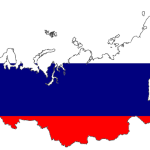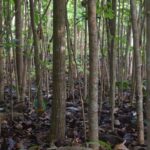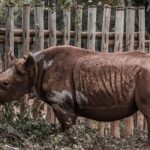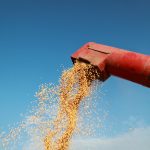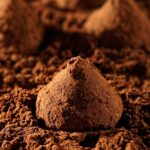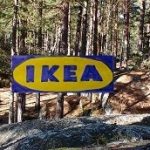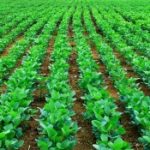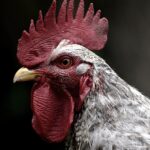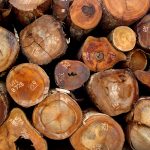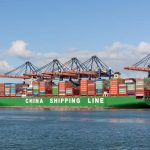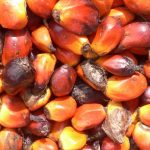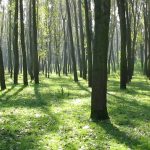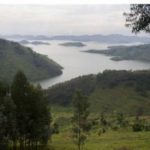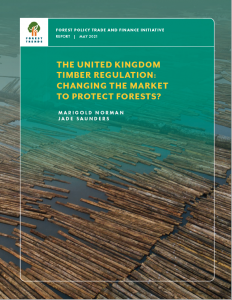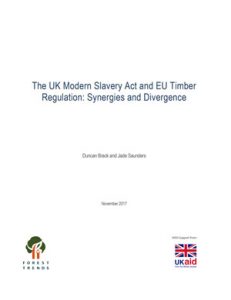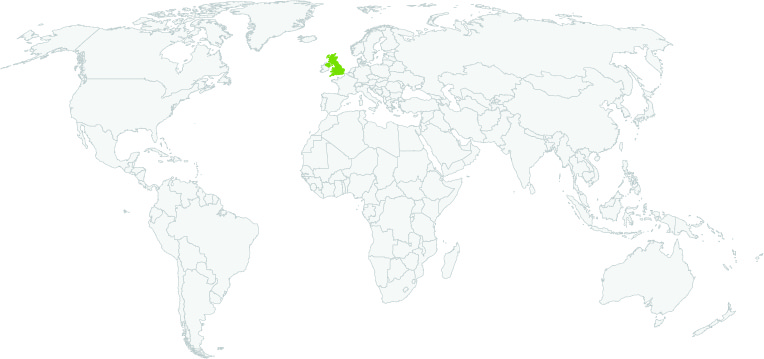
Interpol announced that from 15 September – 15 October, law enforcement agencies comprising police, customs, border security and forestry and wildlife authorities from 134 countries made a total of 4,640 seizures during Operation Thunder 2025.
Australian supply-chain forensics company Source Certain has analysed more than 3,000 wood samples from the British construction sector. Its tests, which identify timber by analysing unique atomic “fingerprints” created by growing conditions, revealed that over 10% of the samples were not what suppliers claimed. Of those with a false origin, three-quarters were traced back to Russia.
Since Russia’s invasion of Ukraine in 2022, imports of Russian and Belarusian wood products have been banned in the UK and across Europe. But investigators say this has fuelled a black market, with timber relabelled as coming from Estonia and other Baltic states. Because Russian timber plantations are state-owned, smuggling revenues are believed to be contributing directly to the Kremlin’s war effort.
Illegal gold mining remains rampant in the Amazon rainforest despite government efforts to curb it, reveals new analyses of satellite data from 2023 to 2024. According to the report by Greenpeace Brazil, national action to combat this destructive activity is not delivering a decrease, but rather a shift in the Indigenous territories affected. While mining activities reduced in Yanomami, Munduruku and Kayapó land (down 7%, 57% and 31%), Sararé land saw a dramatic surge, with illegal mining up by 93%.
Researchers also uncovered discrepancies in gold trade data. According to the investigation, Swiss imports exceeded Brazil’s reported exports by 67% in 2022 and 62% in 2023 – suggesting significant irregularities. in 2024, the top three destinations for Brazilian gold exports were Canada, Switzerland, and the United Kingdom – major international hubs for refining and trade.
Lula’s predecessor, far-right President Jair Bolsonaro deliberately weakened environmental controls in the Amazon. This triggered an explosion in exploration between 2018 and 2022, with a staggering 265% increase in illegal gold mining on Indigenous lands.[4] Since 2023, the current Brazilian government has intensified security and monitoring efforts in key areas. But Greenpeace Brazil’s research shows that illegal mining continues to adapt and spread across the forest – underscoring the urgent need for sustained, long-term strategies.
The Brazilian Supreme Federal Court recently ruled to close a legal loophole that had allowed buyers to accept gold without proving its origin, enabling illegal mining—often in Indigenous territories – to flourish unchecked. Gold buyers must now verify the legality of their purchases, and the government is required to enforce stricter oversight.
The United Kingdom is looking to expand its trade into mahogany timbers and is now eyeing Fiji as a growing market to supply tropical hardwoods in the UK and across Europe. That is according to Dr Brian Jones, British High Commissioner, who said the time for Fijian landowners to seize the opportunity and provide high-value timbers has arrived. The Fiji Hardwood Corporation Ltd (FHCL)—which manages more than 75,000 hectares of mahoney across the country—sells more than 38,000 cubic metres of mahoney into global markets every year
Operation Thunder 2024 (11 November – 6 December) brought together police, customs, border control, forestry and wildlife officials from 138 countries and regions. Authorities arrested 365 suspects and identified six transnational criminal networks suspected of trafficking animals and plants protected by the Convention on International Trade in Endangered Species of Wild Fauna and Flora (CITES).
Timber cases represent the most significant seizures, primarily occurring in sea cargo container shipments, while most other seizures took place at airports and mail processing hubs. More than 49,000 pieces, 214.9 tonnes, or 1340 cubic meters were seized. Significant seizures included:
- Indonesia: 134 tonnes of timber headed to Asia via ocean freight.
- Kenya: 41 tonnes of exotic timber headed to Asia via ocean freight.
The participation of numerous countries contributed to the success of intelligence efforts in the operations, targeting high-value suspects. Authorities investigated online activities and found suspects using multiple profiles and linked accounts across social media platforms and marketplaces to expand their reach.
One of the UK’s largest timber merchants, James Latham, said that preparation for EUDR has led to a swell of traders to divert trade in uncertified hardwoods through the United Kingdom.
Also reported here: EUDR Blamed for Surge of Cheap Hardwoods Now Entering the UK | Wood Central
The British boatbuilder has been fined over £350,000 in a landmark case in the UK courts for importing teak from Myanmar…
Sunseeker International has been fined £358,759.64 for 11 specific imports relating to ‘blood’ teak originating in Myanmar. Sunseeker’s charges included failing to exercise due diligence as an operator when placing timber products on the market, failing to maintain and evaluate a due diligence system for timber or timber products, and failing to comply with article 5(1) of the Commission Implementing Regulation (EU) No 607/201, which pertains to record-keeping obligations for operators.
During the court proceedings, it was revealed that Sunseeker’s timber imports included teak from Myanmar, wenge from Africa, and European oak, with a combined value of just over £60,000. However, although the Poole-based firm was sentenced only based on 11 specific imports, the court heard evidence suggesting there were many more. Judge Fuller noted that Sunseeker was aware of impending changes to timber import regulations after Brexit, which altered its status from ‘trader’ to ‘operator’ and subsequently left it in breach of the rules. He described the company’s failings as a “systemic failure”.
Also reported here: UK luxury yacht firm exposed by EIA the first to be sentenced for importing Myanmar ‘blood’ teak – EIA
Soy deforestation is rising at an “alarming” rate, as a new report shows UK companies could be exposed to illegal practices ahead of a crucial regulatory crackdown.
Soy-driven deforestation and conversion of native vegetation in Brazil has been increasing since 2020, according to exclusive new data seen by The Grocer showing a massive spike over recent years.
Production of the commodity in the South American country was responsible for the deforestation of around 160,000 hectares in 2023, compared to around 40,000 hectares in 2020, according to evidence from Satelligence, the geospatial monitoring company working with some of the world’s largest commodity traders – including Cargill, Nestlé, Unilever, Bunge and Olam – as they prepare for anti-deforestation laws rolling out in the UK and the EU.
A global shortage of cocoa beans has led to a race among cocoa bean processors to secure high-quality beans, while shunning older varieties. The UK has a large stockpile of lower quality beans from Cameroon, viewed in the industry as of lower quality. Companies had hoped the incoming EU Deforestation Regulation would allow the lower-grade material to be written off as unusable. But the EUDR allows existing stocks to be “grandfathered” — meaning they could still be bought and sold.
A new Greenpeace report, Nature Crime Files – Romania – Greenpeace International, followed the traces to the suppliers of furniture companies, such as IKEA. By closely examining the entire supply chain, from logging sites to wood depots, including scrutinising transport permits with geolocation attributes, and visiting processing facilities Greenpeace CEE found old-growth or other high conservation value destruction linked to at least seven different IKEA suppliers in Romania. Investigations identified at least 30 IKEA products, and some of IKEA’s well-known furniture, originating from these producers, raising a concern that wood from old-growth forests could ultimately end up in homes all over Europe and beyond.
Last November, French NGO Sherpa filed a complaint with the National Prosecutor’s Office against French banks BNP Paribas, Crédit Agricole, BPCE, and Axa. It called for a criminal investigation into money laundering and concealment, arguing that the banks’ financial support for Brazil’s biggest beef companies was contributing to illegal deforestation in the Amazon.
Coffee is a globally traded agri-commodity that is also a major driver of deforestation, mass extinction, child labor, slavery, and other abuses.
The FOREST Act just introduced in the U.S. Senate would regulate palm oil, cocoa, rubber, cattle, and soy – but not coffee. Also this month, the U.K. announced details of its long-awaited deforestation legislation, but it doesn’t cover coffee, either.
It’s time for regulators in these top coffee consuming countries to wake up, recognize the urgency, and regulate coffee, a new op-ed argues.
This post is a commentary. The views expressed are those of the author, not necessarily of Mongabay.
New Global Witness report indicates that the UK’s two-year old environmental legislation has not affected deforestation due to lack of follow-up by the government.
Also covered here: Beef, soy and palm oil products linked to deforestation still imported into UK | Deforestation | The Guardian
The UK could become a “dumping ground” for soy linked to intensive deforestation as new environmental legislation lags behind EU efforts, campaigners have warned.
Activists have raised concerns that companies sourcing soy in the Cerrado region of Brazil, which is notorious for intensive logging, could start shifting export volumes from the EU to UK due to weaker regulation.
A new Mighty Earth report, “Tesco: A basket of problems for the Amazon,” shows chicken and pork products sold in Tesco stores are linked to recent, illegal fires and deforestation of 400 hectares of Brazilian Amazon rainforest, equivalent to 560 Wembley football pitches, and the loss of more than 220,000 trees. It follows a thorough investigation mapping Tesco’s full soy supply chain from farm level in the Amazon, via US agricultural giant Cargill, on to UK meat producers Avara and Pilgrim’s UK, and finally to the shelves of the UK’s biggest retailer.
A new investigation into industrial poultry farming in Brazil claims that chicken fed with corn and soya beans grown on deforested land or with unclear origins is ending up on British dinner plates and supermarket shelves.
While many products exported to the UK enjoyed strong increases thanks to the UK-Vietnam Free Trade Agreement (UKVFTA), Vietnam’s timber industry is facing difficulties in expanding in this market, requiring manufacturers and exporters to change their business strategies.
Timber Trade Federation (TTF) issued import warning for TTF-members on birch plywood from the Far East.
“It has been nearly six months since Russia’s awful invasion of Ukraine, with few signs the conflict is going to abate anytime soon.
Though grain exports began to leave Ukraine this week for the first time since the war began, international sanctions on Russia remain very much in place.
Along with maritime sanctions and restrictions on Russian payments, the most significant sanction for our industry is the Russian timber import ban.
The UK government may be undermining its commitments to end deforestation overseas because of conflicts over trade policy, the Guardian has learned.
A war of words is raging within the government over deforestation and trade, with green campaigners warning that a proposed policy could have dire consequences for efforts to stop illegal logging.
Timber chiefs have warned that imports of the material from Russia or Belarus could now be deemed illegal in the UK. The Timber Trade Federation (TTF) told its members that purchases from suppliers in the ostracised nations could fall foul of regulations initially coming into force nine years ago in part to tackle illegal logging abroad.
The Zoological Society of London (ZSL), which, in its 2025 SPOTT assessment of 100 major forestry firms, reports that only 18% disclose the countries from which they source, and a mere 4% can trace their supply chains down to the forest management unit (FMU) level. At the same time, Wood Central understands that none of the companies assessed publish georeferenced maps for all third-party FMUs, and just 3% report what share of their supply is verified deforestation-free.
SPOTT assesses 100 timber and pulp producers, processors and traders on their public disclosure regarding their organisation, policies and practices related to environmental, social and governance (ESG) issues. Each company receives a percentage score to benchmark their progress over time. See further explanation of assessment scores here.
Click here to access the Global Illegal Logging and Associated Trade (ILAT) Risk assessment tool and to download the Forest Trends User Guide describing the functionality of the ILAT Risk Data Tool.
Click here to access the Cattle Data Tool.


